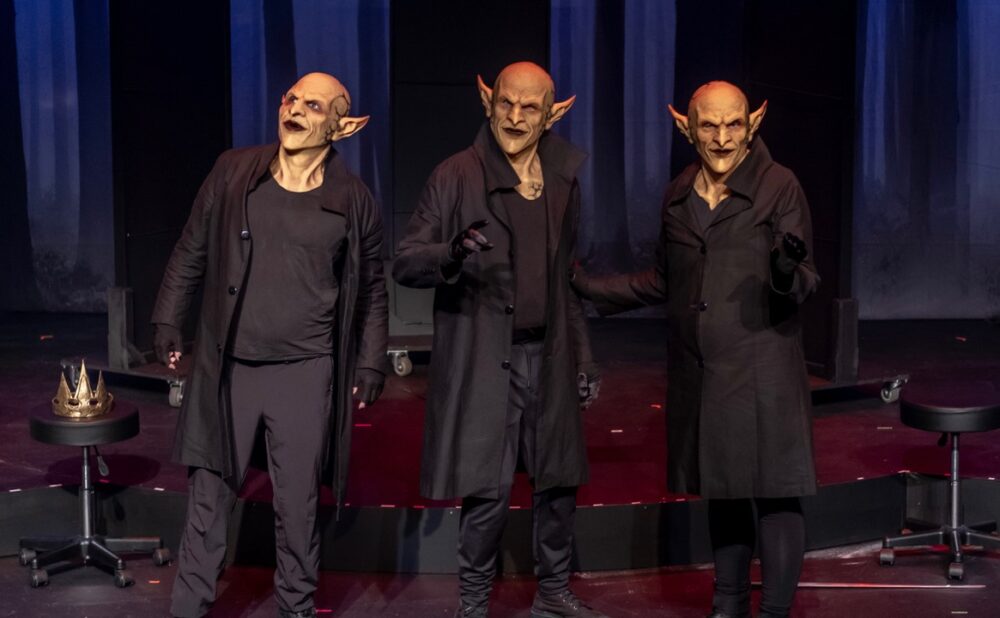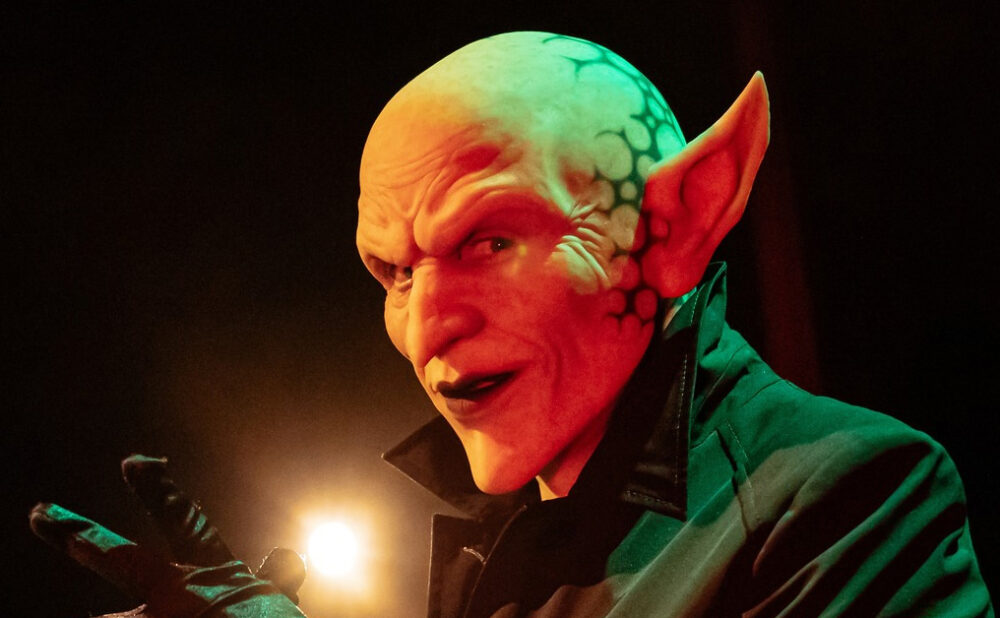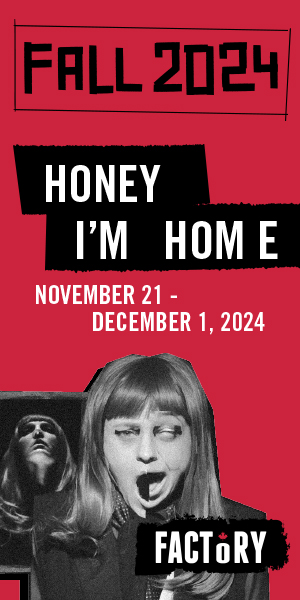Review: Tarragon’s ‘Goblin:Macbeth’ is a clever deconstruction of theatrical convention
Goblins tackle Shakespeare in irreverent Spontaneous Theatre production
What: Goblin:Macbeth
Where: Tarragon Theatre, 30 Bridgman Ave.
When: Now, until Sun., Oct. 27
Highlight: The live soundscape by Moog, one of the show’s Goblins
Rating: NNNN (out of 5)
Why you should go: Creators Rebecca Northan and Bruce Horak know exactly what they want to do — and the result is seriously charming.
DESPITE THE audacity of its title, Spontaneous Theatre’s Goblin:Macbeth proves remarkably straightforward. Just a couple big-picture ideas are at play: the first is that Goblins have seized control of the Tarragon Theatre Mainspace; the second is that they’ve found a copy of the First Folio and are doing Macbeth. Over 90 minutes, that conceit plays out, with nary a twist in sight. Creators Rebecca Northan and Bruce Horak know exactly what they want to do — and the result is seriously charming.
Before I arrived at the theatre, the production’s trio of bald, pointy-eared Goblins had already hijacked the space and begun setting up for their take on the Scottish Play. Props and set pieces littered the floor — including, to the horror of superstitious drama teachers everywhere, mirrors. The creatures even got their hands on the program, apparently, as no human performers are listed, just the Goblin names Kragva, Moog and Wug.
After convincing Tarragon’s technicians to let them use the lights, the Goblins get the iambic pentameter rolling. Wug plays Macbeth with bassy, Stratfordian heft while the less enthusiastic Kragva takes on Lady M. The duo also transforms into Macduff, the witches and nearly everyone else as Moog is usually busy perching off to the side, creating a lovely live soundscape out of instruments and found objects.
Perhaps surprisingly, I don’t know that a production of Macbeth has ever made me so aware of how damn good the script is. The contrast between the silliness of the Goblins and the poetics of Shakespeare’s language ends up underlining both sides of the equation. Multiple times, the Goblins break from the text to banter with the audience or argue about how the tragedy should be done (for reasons opaque, Wug lectures on Shakespeare performance like he’s a National Theatre School grad). When they snap back to Macbeth, often isolated in light (thanks to designer Anton DeGroot), the world of the play reappears in a disarming flash — just a couple lines, and the audience is back in it.
This recontextualization of Shakespeare, combined with the show’s other breaks from theatrical tradition (there’s no real curtain call, for instance), means that Goblin:Macbeth has a defamiliarizing effect. Beyond being fun, it exists to question why conventional theatre functions the way it does. For, are the rules not essentially arbitrary? The only thing theatre really needs are bodies. They don’t even need to be human.








